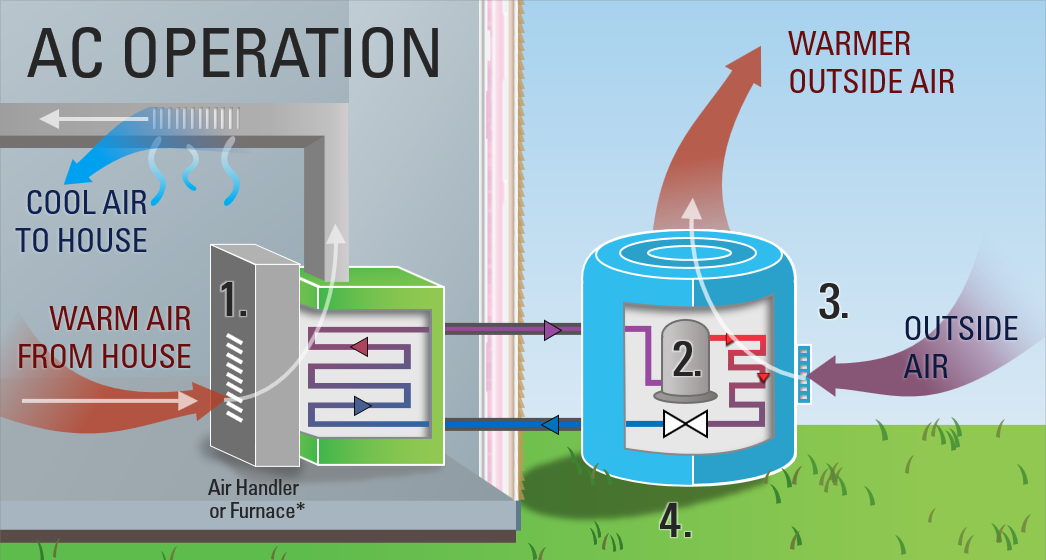Navigating the Southeast Georgia & Low Country Heat Wave: How Your AC System Works and When to Call for Help
As the current heat wave sweeps through Southeast Georgia and the Low Country, our air conditioning systems are working overtime to keep us cool. With temperatures soaring, it’s essential to understand how your AC system operates, how it reacts to extreme heat, and how to determine if it needs professional attention.
How Your AC Works
An air conditioning system operates by removing heat from your home and releasing it outside. Here’s a brief rundown of the process:
- Evaporation: The indoor unit’s evaporator coil absorbs heat from the air inside your home.
- Compression: The refrigerant carrying this heat is then compressed, raising its temperature and pressure.
- Condensation: The outdoor unit’s condenser coil releases the absorbed heat into the outside air.
- Expansion: The refrigerant cools down as it passes through the expansion valve, ready to absorb more heat.

The Impact of Extreme Heat
During a heat wave, your AC system faces several challenges:
- Increased Load: Higher outdoor temperatures mean your system must work harder and longer to maintain a comfortable indoor temperature.
- Reduced Efficiency: The efficiency of your AC unit can decrease as it struggles to expel heat in extreme conditions.
- Potential Overheating: Prolonged operation can lead to overheating of system components, potentially causing damage.
Every Home is Different
Each home has a unique balance point influenced by factors such as age, build, and insulation. Our AC systems work at peak efficiency when outdoor temperatures are below 95°F and humidity levels are around 50%. As humidity increases, efficiency decreases. For example:
- At 10% humidity and 100°F, you can lower the temperature by 27°F to 73°F.
- At 80% humidity and 80°F, you can lower the temperature by only 3°F to 77°F.
Managing High Humidity
If the air is extremely moist, evaporative cooling becomes less effective. For instance, at 100°F and high humidity levels (60-80%), your AC may struggle to maintain the set temperature.
Tips to Keep Your Indoor Temperature Low
While your AC is doing its best, here are some tips to help it out:
- Close Blinds and Curtains: Prevent direct sunlight from heating your indoor space.
- Use Ceiling Fans: Circulate air to create a cooling effect.
- Avoid Heat-Generating Activities: Limit the use of ovens, stoves, and other appliances that produce heat.
- Seal Gaps: Ensure windows and doors are well-sealed to keep cool air in and hot air out.
How to Know if Your AC Needs Attention
It’s essential to know if your system is merely under strain due to extreme heat or if it requires repair. Look out for:
- Cooling Performance: If your indoor temperature does not drop or continues to rise as outdoor temperatures cool down in the evening and night, it might indicate an HVAC-related problem.
- Consistency: If your AC can't maintain a comfortable indoor environment despite lower outdoor temperatures, it’s time to call in the professionals.
When to Call for Professional Help
If you notice any of the signs mentioned above, it’s time to call a professional. An HVAC technician can:
- Inspect and Clean Coils: Dirty coils can reduce efficiency and lead to overheating.
- Check Refrigerant Levels: Low refrigerant can cause inadequate cooling and damage to the compressor.
- Evaluate System Components: Ensure all parts are functioning correctly and efficiently.
Dyess Air & Plumbing
While the current heat wave is pushing our AC systems to their limits, understanding how they work and recognizing signs of trouble can help keep your home comfortable. Remember, a little planned maintenance can go a long way in ensuring your system runs smoothly all summer long. If you suspect your AC needs attention, don’t hesitate to reach out to the professionals at Dyess Air & Plumbing.


